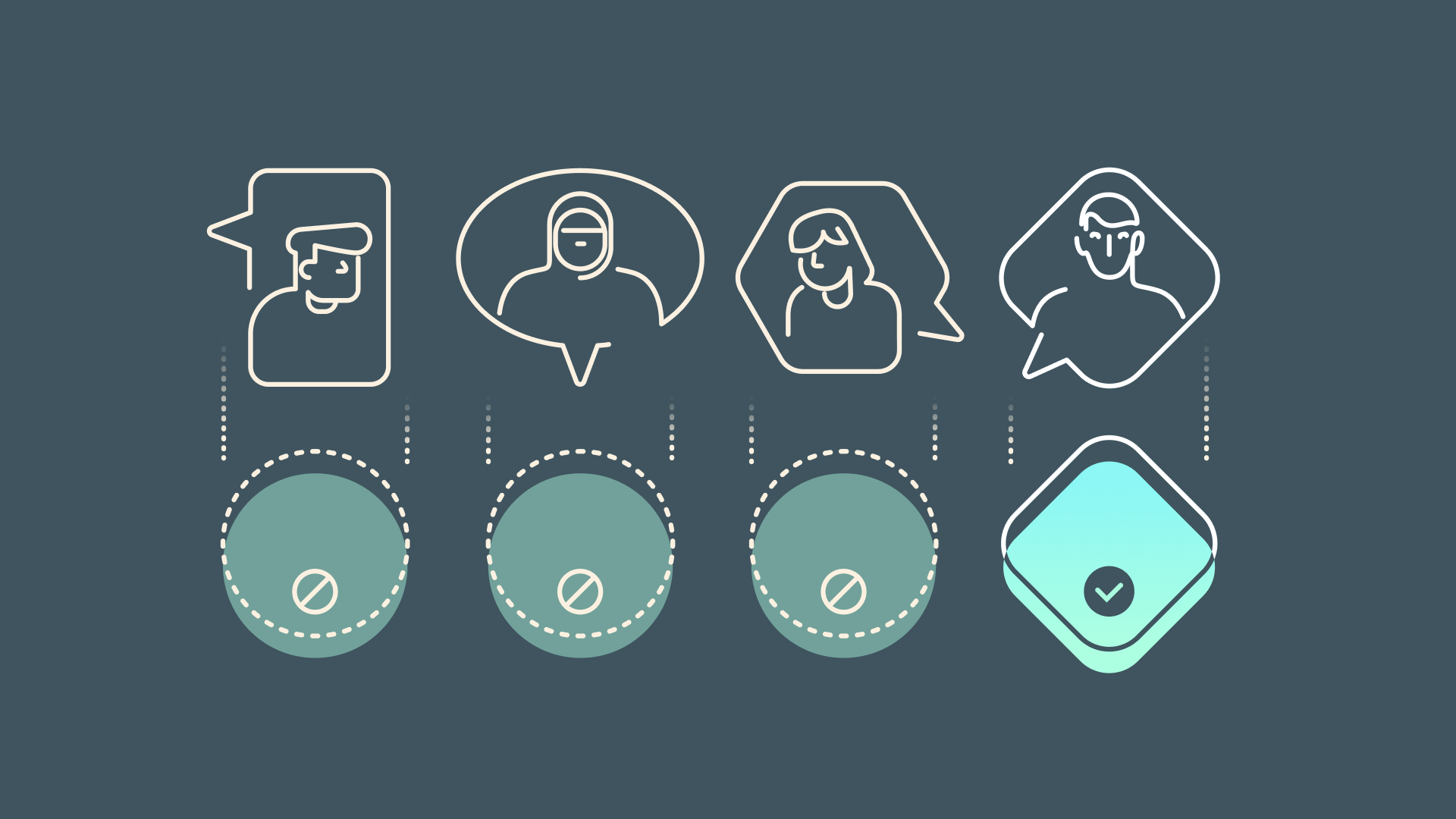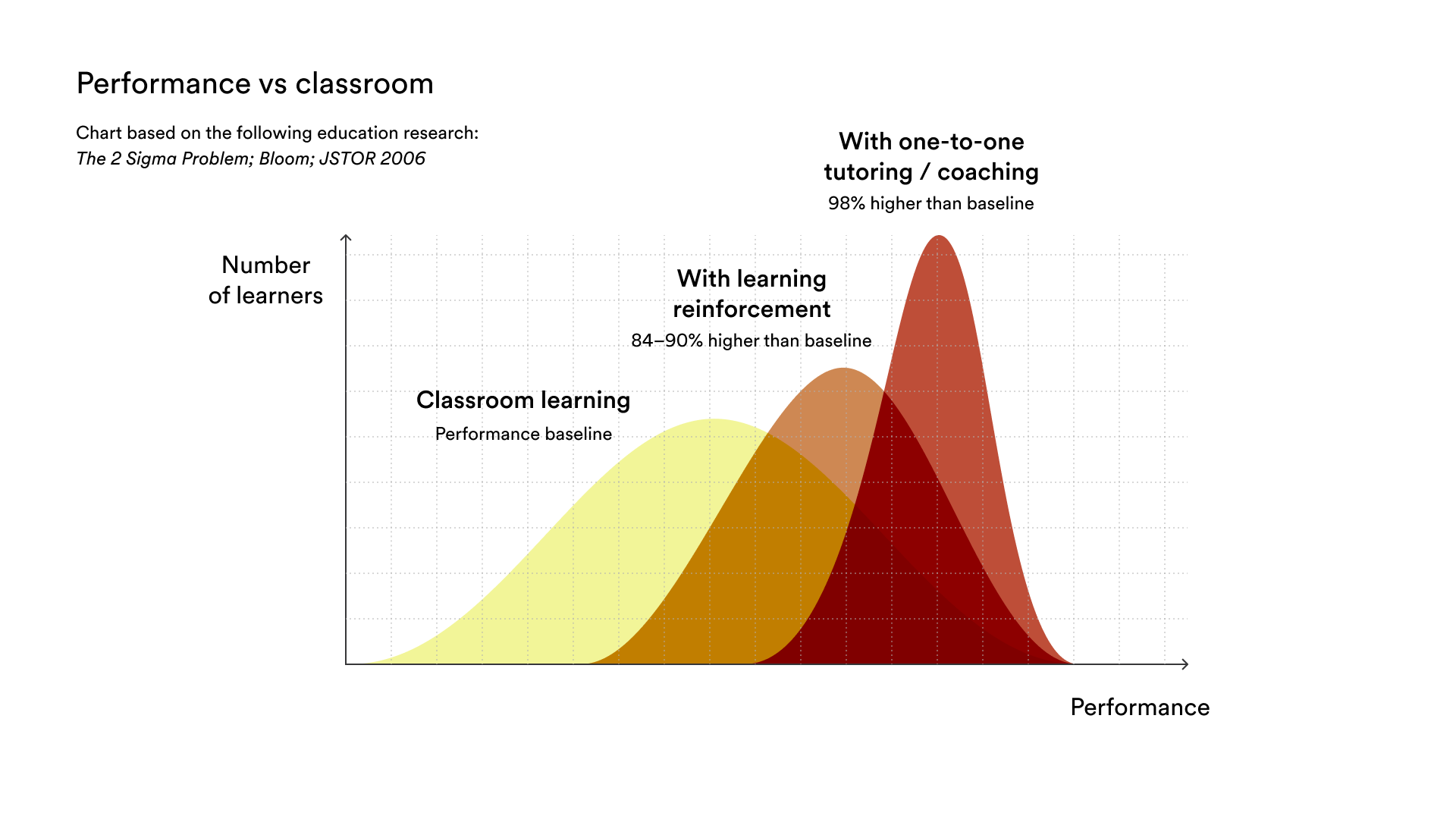14th October 2025

14th October 2025

Education research has long shown the effectiveness of personalized learning. Bloom’s 2 Sigma Problem demonstrated that students receiving one-to-one tutoring performed significantly better than those in conventional classrooms. The challenge, however, was that this approach was considered too costly to scale.
HR and L&D leaders face the same dilemma in corporate language training. Although there is broad consensus that personalized approaches deliver the strongest results, few organizations are able to offer them at scale. With recent advances in learning AI, that may be about to change.

In a survey of 1,300 training decision makers at the world’s largest companies, HR and L&D leaders consistently listed one-to-one learning opportunities and personalized instruction as the most important features in a language program. Flexibility, adaptability, cultural immersion, and interactive content also ranked among the top five.
1. One-on-one learning opportunities
2. Personalized learning and adaptability
3. 24/7 access and flexibility
4. Cultural immersion and awareness
5. Interactive and engaging content
Source: EF Corporate Learning Maturity Report, 2025
Despite this consensus, the same survey revealed that fewer than a third of organizations were delivering a high level of individual personalization in their language training programs.
Most global companies leverage online platforms and self-study tools, which ensure broad access and flexibility, but limited tailoring. Others use tiered models, combining wide access for global consistency with targeted investment for strategically decided roles. The result is that most employees do not receive the individualized support needed to overcome sticking points or achieve real proficiency progress.
The barrier to personalized, adaptive learning has always been scalability. EF Corporate Learning is addressing this by combining decades of language teaching expertise with proprietary insights from millions of classes and teacher interactions. The result is AI that is fine-tuned to teach language skills.
As Dr. Christopher McCormick, Chief Academic Officer at EF Corporate Learning, explains:
“AI does not change what works in language learning – it makes proven methods scalable, personal, and measurable for every learner.”
While traditional language education has often focused on delivering knowledge, skills, such as speaking, are built most effectively through consistent practice and feedback. EF’s AI Conversations now offer unlimited access to low-pressure speaking practice in real-world scenarios, which adapt based on the individuals’ responses and offer instant, personalized feedback.
This feature has already delivered measurable impact across diverse organizations. In large-scale deployments, study times have risen by up to 250 percent, with learners reporting improved confidence due to practicing in a low-pressure environment.
Building on these advances, EF has launched Addi, an AI-powered learning assistant that brings the benefits of one-to-one tutoring to entire workforces. Already supporting more than four million learners worldwide, she analyzes study history, provides tailored corrections, and delivers real time academic support and encouragement. In areas such as pronunciation and fluency analysis, Addi can provide feedback with a higher level of consistency, precision and detail than the human ear would be able to pick up on.
By offering a safe, judgment-free environment and immediate feedback, integrating AI into the learning journey helps learners build fluency and confidence before stepping into a classroom or workplace interaction. Crucially, it complements rather than replaces teachers, extending personalized support between sessions while leaving teachers free to focus on higher-value interactions.
AI is only as effective as the data and expertise behind it. Public AI tools are trained on general internet content, meaning they have a broad knowledge, but are not intended to teach skills like languages. In contrast, EF’s models are customized with proprietary data from millions of classroom interactions and expert teacher feedback. Informed by decades of experience in how the best educators correct errors and sustain motivation, they do not just generate text but teach.
Equally important is how the system operates. Effective solutions for corporate learning run on enterprise-grade agreements, with all training data anonymized and processed within proprietary systems. Built-in guardrails are essential to keep conversations on topic and aligned with each learner’s level.
Finally, AI for education is most powerful when embedded within a structured, proven curriculum. This ensures that every interaction reinforces long-term learning goals, combining adaptability and scalability with the rigor of established pedagogy.
Together, these elements come to life in Addi. Designed around the same principles that make great teachers effective, Addi extends a personalized learning experience to entire global workforces.
In 1984, Bloom posed the 2 Sigma Problem: how to make group instruction as effective as one-to-one tutoring. After decades of research, advances in AI, as exemplified by Addi, mean that this problem can finally be solved. The question is no longer whether personalization can be achieved, but how organizations will harness it to transform both employee potential and business performance in the years ahead.